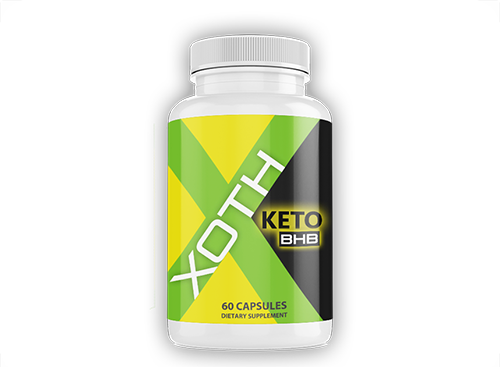Introduction
The ketogenic diet, or keto diet, has gained immense popularity in recent years as a proven method for weight loss and improved overall health. This low-carbohydrate, high-fat diet has shown promising results for individuals seeking to lose weight, regulate blood sugar, and boost their energy levels. To successfully embark on the keto journey, it is essential to understand what foods are permissible and what should be avoided. In this comprehensive guide, we will delve into what you can and cannot eat on the keto diet to help you achieve your health and fitness goals.
What is the Keto Diet?
The keto diet is a low-carb, high-fat diet that has been designed to shift your body into a state of ketosis. Ketosis is a metabolic state where your body primarily relies on fat for energy because carbohydrate intake is limited. To achieve ketosis, individuals must drastically reduce their carbohydrate intake, typically to less than 50 grams per day, and increase their consumption of fats.
What You Can Eat on the Keto Diet
Fats
Fats are the cornerstone of the keto diet. Healthy fat sources are essential to meet your daily caloric intake. You can consume:
- Avocado: Avocado is a rich source of monounsaturated fats and low in carbs, making it an excellent choice for the keto diet.
- Olive Oil: Extra virgin olive oil is a staple in Mediterranean cuisine and is packed with healthy fats.
- Coconut Oil: Coconut oil is high in medium-chain triglycerides (MCTs), which can help boost ketone production.
- Butter and Ghee: Butter and ghee are rich in saturated fats, suitable for keto cooking and baking.
- Fatty Fish: Salmon, sardines, and mackerel are not only high in healthy fats but also rich in omega-3 fatty acids, which have numerous health benefits.
- Nuts and Seeds: Almonds, walnuts, chia seeds, and flaxseeds can be incorporated into your diet as long as you monitor your portions.
Proteins
Protein is a crucial component of the keto diet. Opt for:
- Lean Meats: Chicken, turkey, and lean cuts of beef and pork.
- Fatty Meats: Bacon, sausage, and other fatty cuts of meat are keto-friendly.
- Seafood: Fish and shellfish are excellent sources of protein and healthy fats.
- Eggs: Eggs are a versatile and nutritious source of protein, and they can be prepared in various ways.
- Dairy: Full-fat dairy products like cheese and yogurt can be included in your diet in moderation.
Low-Carb Vegetables
While vegetables are generally healthy, not all are suitable for the keto diet due to their carbohydrate content. Focus on low-carb options such as:
- Leafy Greens: Spinach, kale, and arugula are excellent choices.
- Cruciferous Vegetables: Broccoli, cauliflower, and Brussels sprouts are low in carbs.
- Bell Peppers: Bell peppers, particularly the green variety, are low in carbohydrates.
- Zucchini: Zucchini can be spiralized into noodles or sliced into chips for a keto-friendly pasta alternative.
- Avocado: Technically a fruit, avocados are low in net carbs and high in healthy fats.
Berries
Berries, such as strawberries, blackberries, and raspberries, are lower in carbohydrates compared to other fruits. They can be enjoyed in moderation as a treat on the keto diet.
Sweeteners
Keto-friendly sweeteners can be used in moderation to satisfy your sweet tooth. Options include erythritol, stevia, and monk fruit.
Beverages
Hydration is crucial on the keto diet. Opt for water, herbal tea, and black coffee without added sugars or high-carb creamers.
Supplements
Some people may consider taking keto supplements, such as exogenous ketones and MCT oil, to support their efforts to reach and maintain ketosis. However, it’s important to consult with a healthcare professional before incorporating supplements into your diet.
What You Cannot Eat on the Keto Diet
High-Carb Foods
To achieve and maintain ketosis, you should avoid or strictly limit foods high in carbohydrates, including:
- Grains: Bread, pasta, rice, and cereal are high in carbs and should be eliminated.
- Sugary Foods: Candy, cookies, cakes, and other sugary treats are off-limits.
- Starchy Vegetables: Potatoes, corn, and carrots are too high in carbs for the keto diet.
- Legumes: Beans, lentils, and peas are rich in carbohydrates.
- Fruits: Most fruits are high in natural sugars and should be consumed sparingly.
Processed Foods
Many processed foods are filled with hidden sugars and unhealthy fats, making them unsuitable for the keto diet. Avoid:
- Fast Food: Most fast food items are high in carbs and unhealthy fats.
- Sugary Beverages: Soft drinks, fruit juices, and sugary coffee drinks should be avoided.
- Snack Foods: Chips, pretzels, and other snack foods are typically high in carbohydrates.
- Low-Fat Products: Low-fat products often compensate for reduced fat content by adding extra sugar.
Artificial Trans Fats
Artificial trans fats are unhealthy and should be eliminated from your diet. Check food labels for partially hydrogenated oils, a common source of trans fats.
Most Condiments and Sauces
Many condiments and sauces, such as ketchup and barbecue sauce, contain added sugars. Opt for sugar-free or low-carb alternatives.
Alcohol
Alcohol can slow down ketosis, so it’s best to avoid or limit your alcohol consumption on the keto diet. When you do drink, opt for spirits like vodka, rum, or gin, and choose low-carb mixers.
Conclusion
The keto diet is a popular and effective way to promote weight loss and improve overall health. To succeed on this diet, it’s essential to know what foods you can and cannot eat. Embrace healthy fats, lean proteins, and low-carb vegetables while avoiding high-carb foods and processed items. By following these guidelines, you can enjoy the benefits of the keto diet and achieve your health and fitness goals. Remember, it’s always a good idea to consult with a healthcare professional or registered dietitian before making significant dietary changes to ensure it’s the right choice for your individual needs and health.



